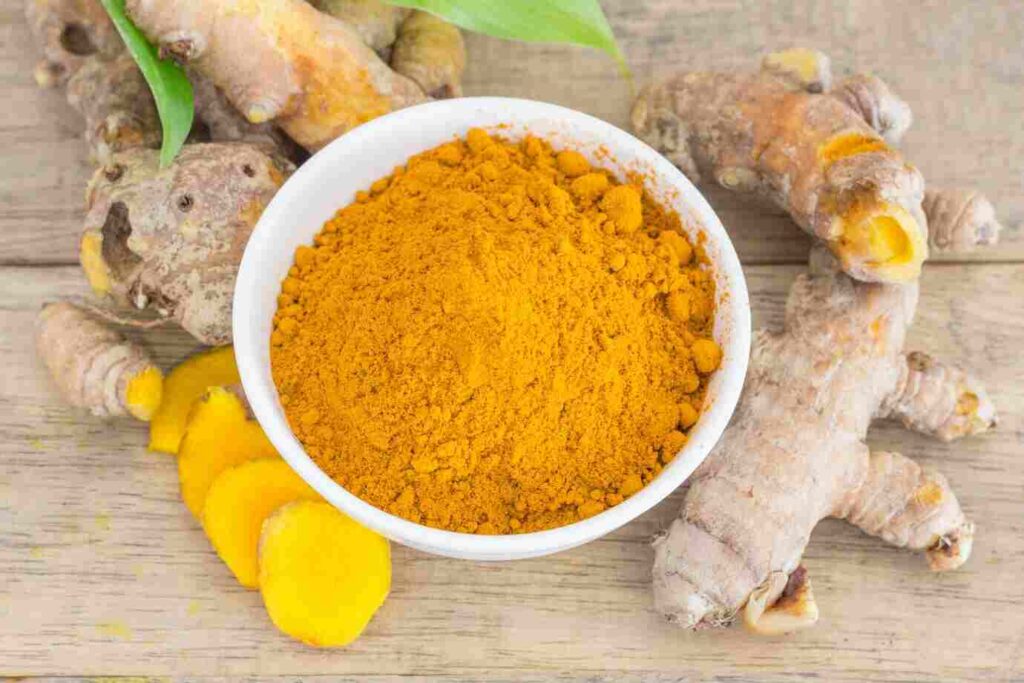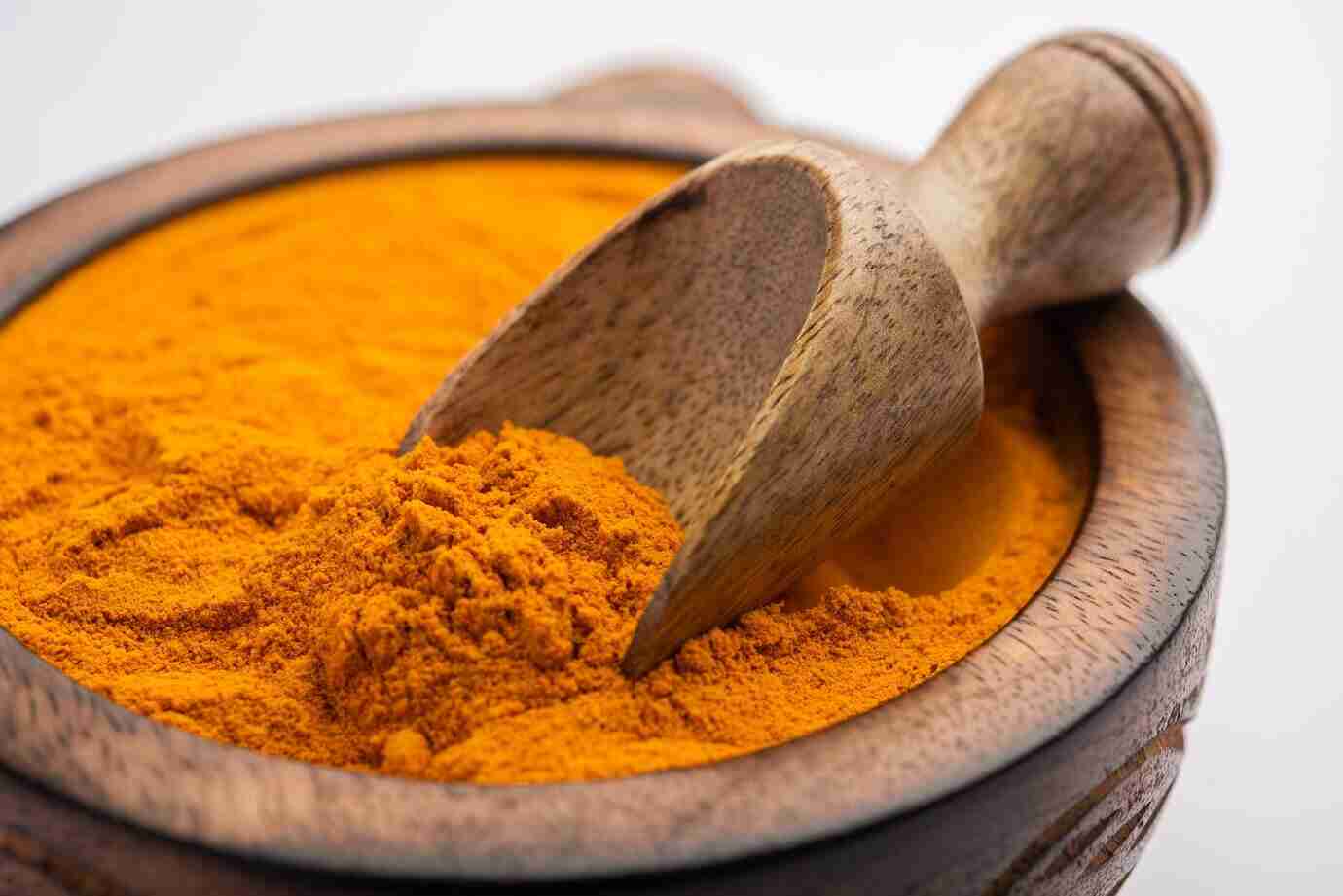Turmeric isn’t just a kitchen spice—it’s a healing star with deep roots in traditional medicine. For centuries, people across Asia have used turmeric in Ayurvedic and herbal remedies. They believed it helped with many health problems, from pain to digestion.
Today, science is catching up with those ancient claims. Turmeric’s main active ingredient is curcumin. It gives the spice its bright yellow color and powerful health effects. Researchers now study curcumin for its ability to fight inflammation, support brain health, and protect against illness.
So, why is turmeric getting so much attention? What does modern science say about it? And how can you get these turmeric benefits into your daily routine?
This article explores the real health benefits of turmeric. You’ll learn what it does in the body, how to take it, and tips to make it part of your everyday life—easily and naturally.
What Is Turmeric and How Does It Work?
Turmeric is a bright yellow spice that comes from the root of a plant. It’s part of the ginger family. People often use it in cooking, but it’s also known for its healing powers.
The most powerful part of turmeric is curcumin. Curcumin gives turmeric its color. It also gives turmeric many of its health effects. Curcumin is a strong antioxidant. It helps fight free radicals that can damage your cells. It also works as an anti-inflammatory. That means it may help reduce swelling and pain in the body.
But there’s a catch. Curcumin doesn’t absorb well in the body on its own. This means your body can’t use it easily. To fix this, experts suggest taking it with black pepper. Black pepper contains piperine. Piperine helps your body absorb curcumin better—sometimes up to 2,000% more!
That’s why many turmeric supplements also include black pepper.
So when people talk about turmeric and curcumin, they really mean a team. One brings the power, and the other helps it work better. Now that you know how turmeric works, let’s look at its real health benefits.
Top Health Benefits of Turmeric
Turmeric is more than just a spice. It’s a powerhouse of health benefits. Thanks to its main compound, curcumin, turmeric offers a wide range of advantages. Below are the top health benefits of turmeric, backed by research.
1. Anti-inflammatory Effects
Chronic inflammation is linked to many health problems, from heart disease to arthritis. Turmeric’s curcumin has strong anti-inflammatory properties, helping reduce swelling and pain in the body. This makes it especially beneficial for people with conditions like arthritis and other inflammatory disorders.
Scientific Support:
A study published in Clinical Nutrition found that curcumin significantly reduced inflammation markers in people with osteoarthritis. Another study showed that it was as effective as anti-inflammatory drugs for managing joint pain and stiffness in people with rheumatoid arthritis.
2. Antioxidant Power
Curcumin is a potent antioxidant, meaning it helps neutralize harmful free radicals in the body. Free radicals can cause oxidative stress, which damages cells and accelerates aging. By reducing oxidative stress, turmeric helps protect cells and supports overall health.
Scientific Support:
Research in the Journal of Nutritional Biochemistry found that curcumin effectively scavenges free radicals, offering protection against cell damage. This antioxidant activity helps in slowing down the aging process and protecting against diseases like Alzheimer’s.

3. Brain Function Support
Turmeric may also support brain health. It is believed to boost levels of brain-derived neurotrophic factor (BDNF), a protein that plays a crucial role in brain function, including memory and learning. Low levels of BDNF are linked to brain diseases such as Alzheimer’s and depression.
Scientific Support:
A study in The American Journal of Geriatric Psychiatry found that curcumin increased BDNF levels in people with mild cognitive impairment, showing potential for reducing the risk of Alzheimer’s and improving brain health.
4. Heart Health
Turmeric may help keep your heart healthy by improving blood vessel function and reducing the risk of heart disease. It can help lower cholesterol, reduce plaque buildup, and improve blood flow.
Scientific Support:
A study in The American Journal of Cardiology showed that curcumin significantly improved blood vessel function and reduced the risk of heart disease. Another study found that turmeric supplementation helped lower blood pressure in people with high blood pressure.
5. Supports Joint Health
Joint health is one of the most well-known benefits of turmeric. Its anti-inflammatory properties can help ease pain and stiffness, especially for those with arthritis. Regular consumption of turmeric may also slow down joint degeneration.
Scientific Support:
A study published in Arthritis & Rheumatism found that curcumin significantly reduced pain and improved joint function in people with osteoarthritis. In another study, turmeric was shown to reduce symptoms of rheumatoid arthritis, such as joint swelling and pain.
6. May Help Prevent Certain Cancers
Curcumin has shown promise in cancer prevention. It’s believed to have anti-mutagenic and protective properties that can stop cancer cells from forming and spreading. While more research is needed, early studies suggest that turmeric may help in reducing the risk of some cancers, including breast, colon, and prostate cancer.
Scientific Support:
Research in Cancer Letters highlighted that curcumin can prevent cancer cell growth and stop tumors from forming. Additionally, a review in The Lancet Oncology found that turmeric’s anti-inflammatory and antioxidant properties may help lower the risk of several cancers.
7. Digestive Health
Turmeric can help improve digestion and ease symptoms like bloating and gas. It stimulates bile production, which helps in the digestion of fats. It also has anti-inflammatory properties that can reduce gut irritation and support overall gut function.
Scientific Support:
A study in the Journal of Clinical Gastroenterology found that curcumin helped reduce symptoms of indigestion, including bloating, heartburn, and discomfort. Other research indicates that turmeric may play a role in treating conditions like irritable bowel syndrome (IBS) and inflammatory bowel diseases (IBD).
How to Take Turmeric
Turmeric can be consumed in various forms, and how you take it plays a role in how well your body absorbs its active compound, curcumin. Here’s a breakdown of the best ways to incorporate turmeric into your diet:
1. Fresh Turmeric Root
Fresh turmeric root can be grated or juiced and added to smoothies, soups, or teas. It has a vibrant, earthy flavor and offers the most natural form of turmeric.
2. Dried Turmeric Powder
Turmeric powder is the most common and convenient form. You can add it to curries, stews, rice dishes, or even sprinkle it on roasted vegetables. It’s also used in beverages like golden milk (a mix of turmeric, milk, and spices) or turmeric tea.
3. Turmeric Tea
Turmeric tea is a soothing and easy way to enjoy its benefits. Simply steep a teaspoon of turmeric powder in hot water with a pinch of black pepper. You can also add honey or ginger for extra flavor and benefits.
4. Capsules or Supplements
For those who prefer a more concentrated dose, turmeric capsules or curcumin supplements are a good option. These often contain standardized amounts of curcumin, making it easier to get a consistent dosage.
5. Combine with Black Pepper and Healthy Fats
Curcumin has low bioavailability, meaning it’s not easily absorbed by the body. To enhance absorption, combine turmeric with black pepper, which contains piperine, a compound that increases curcumin absorption. Healthy fats, like those in coconut oil or avocado, also help the body absorb turmeric more efficiently.
6. Daily Dosage Recommendations
For general health benefits, aim for 1-3 grams of turmeric powder per day, or the equivalent in supplements. If you are using turmeric for more specific health issues, such as joint pain or inflammation, higher dosages may be recommended, but it’s best to consult with a healthcare provider.
By adding turmeric in a form that fits your lifestyle, and combining it with black pepper and fats, you can maximize its health benefits. Whether you prefer it in your food or as a supplement, turmeric is a powerful ally for your overall wellness.
Potential Side Effects and Precautions
Turmeric is generally safe when consumed in food amounts. It’s been used for centuries in cooking and traditional medicine without significant adverse effects. However, like any supplement or herb, it’s important to be mindful of potential side effects, especially at high doses.
Possible Side Effects
In most people, turmeric is well-tolerated, but taking high doses (often in supplement form) may cause gastrointestinal issues, such as nausea, stomach upset, or acid reflux. These side effects are more likely when taking large quantities of turmeric or curcumin.
Interaction with Medications
Turmeric can interfere with certain medications, particularly blood thinners like warfarin, as it has natural blood-thinning properties. If you are on medication to prevent blood clots or have a bleeding disorder, it’s crucial to consult with a healthcare provider before taking turmeric supplements.
People with Gallbladder Issues
Turmeric stimulates bile production, which may be beneficial for digestion in healthy individuals. However, people with gallbladder disease or a history of gallstones should be cautious, as turmeric might worsen these conditions by increasing bile flow.
Pregnancy and Breastfeeding
While moderate amounts of turmeric in food are considered safe during pregnancy and breastfeeding, high doses or supplements should be avoided unless approved by a healthcare provider, as they may pose risks.
If you are considering adding turmeric to your daily routine, especially in supplement form, it’s always a good idea to talk to your doctor, especially if you have pre-existing health conditions or are on medications. It’s about using turmeric safely to enjoy its many benefits without unnecessary risks.
FAQs About Turmeric
How much turmeric should I take daily?
The recommended dosage of turmeric varies depending on the form used. For general health benefits, 1-2 teaspoons of turmeric powder daily is typical. If you’re using supplements, doses of 400-600 mg of curcumin (the active compound in turmeric) 2-3 times a day are common. However, always check with a healthcare provider before starting high-dose supplements.
Is turmeric good for arthritis?
Yes, turmeric may help with arthritis, especially osteoarthritis. Its anti-inflammatory properties, mainly due to curcumin, can reduce joint pain and swelling. Studies show that turmeric supplementation can be as effective as some over-the-counter anti-inflammatory drugs for managing arthritis symptoms. However, consult a doctor before starting any new treatment.
Can turmeric help with weight loss?
Turmeric may aid in weight loss, but it’s not a quick fix. Its anti-inflammatory effects can help with fat metabolism, and it may reduce the risk of obesity-related conditions. Some studies suggest that curcumin may help reduce belly fat, but it should be combined with a balanced diet and regular exercise for optimal results.
What is the best time to take turmeric?
The best time to take turmeric depends on your goals. For general health, you can take it at any time of day with meals to improve absorption. If you’re using turmeric for inflammation or joint pain, you might benefit from taking it with a fatty meal since it enhances curcumin absorption. Pairing it with black pepper can also increase its effectiveness.
Conclusion
Turmeric is a powerful natural remedy with a wide range of health benefits, especially for inflammation and joint health. Regularly including it in your diet or as a supplement can support your overall well-being, from boosting brain function to enhancing heart health.
Whether through meals or capsules, make turmeric a consistent part of your routine for its long-term wellness benefits. As with any supplement, it’s always a good idea to consult with a healthcare provider, particularly if you have underlying health concerns.
Embrace the golden spice and enjoy its many health-promoting properties!
